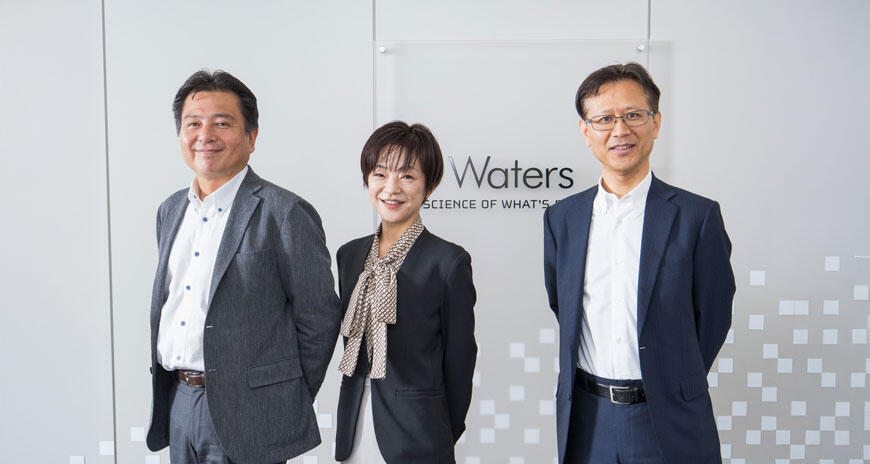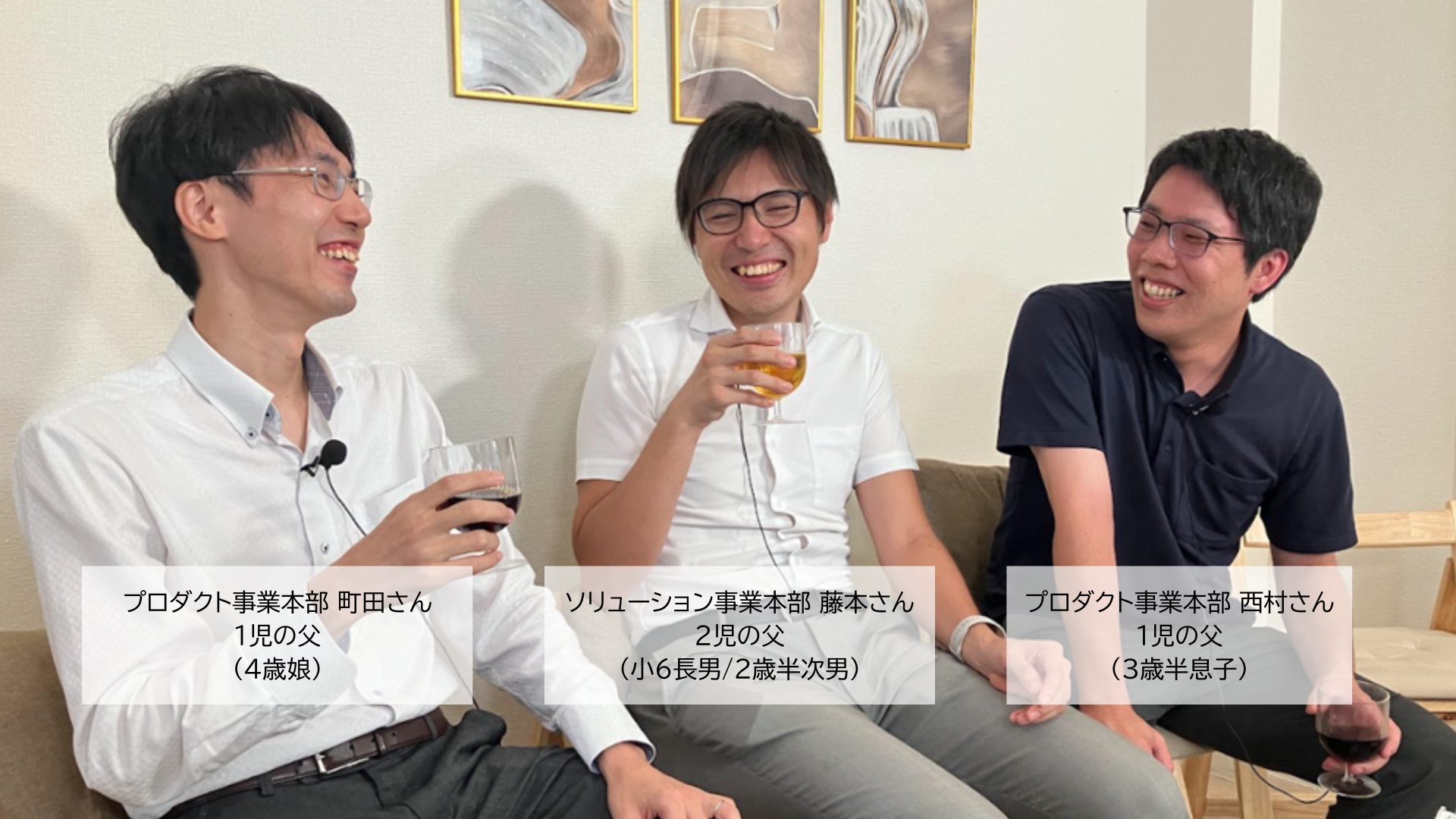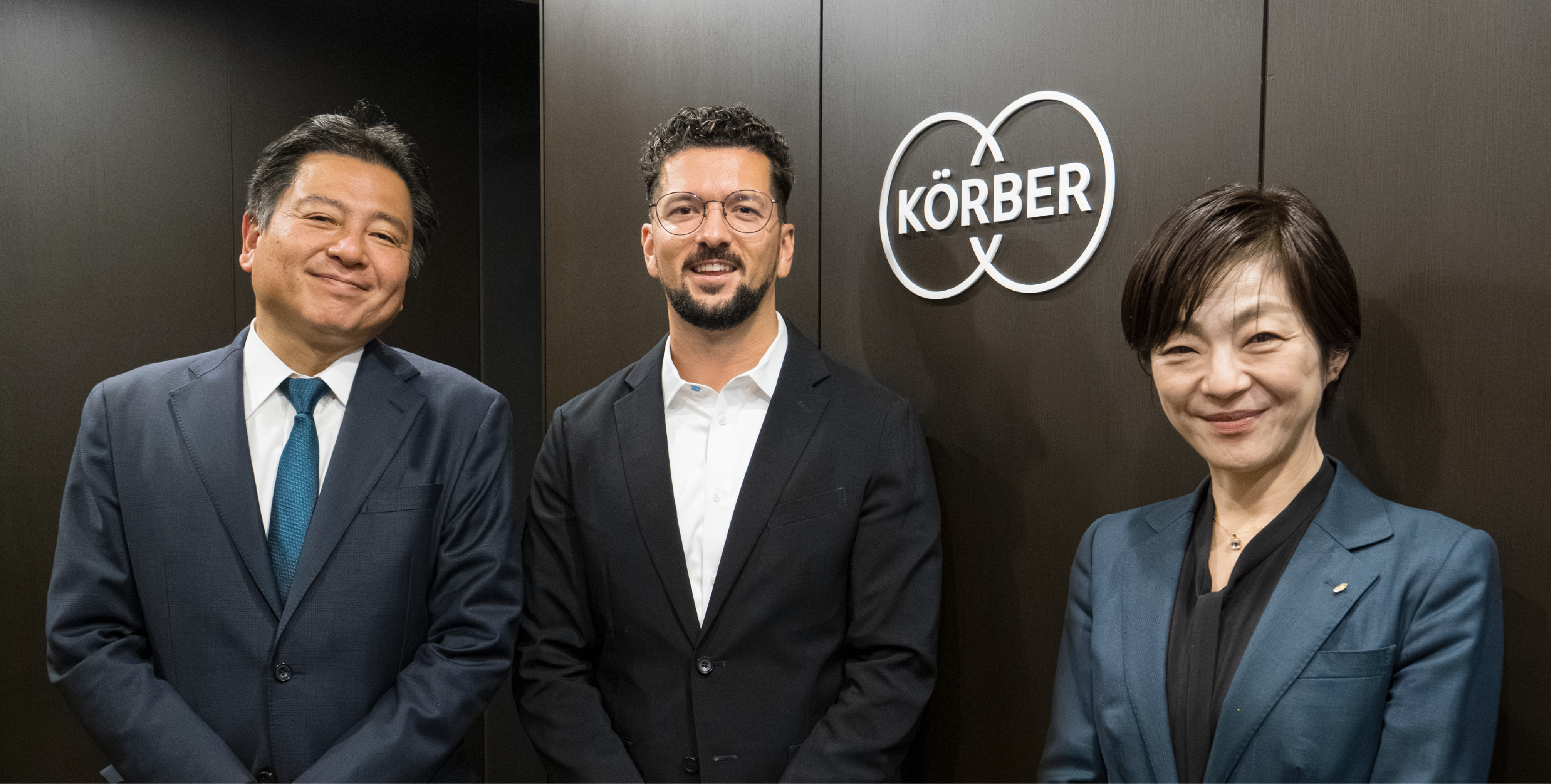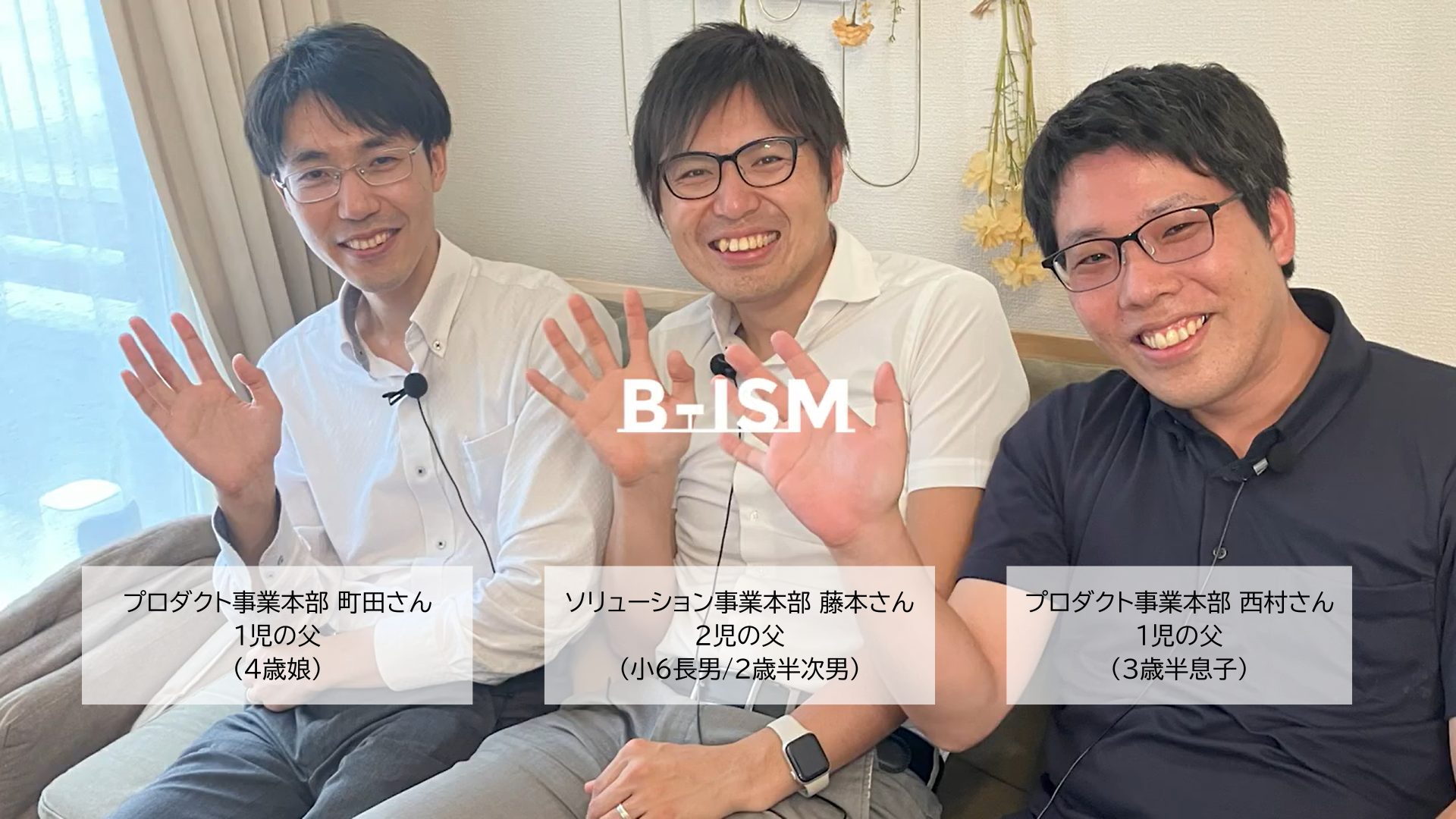Creating the future of healthcare together
Licensors' thoughts on the future of life sciences
1st Nihon Waters K.K.
Nihon Waters has a strong presence in the fields of laboratory equipment and software, such as liquid chromatography and mass spectrometry. How does the head of the company, who is in charge of domestic expansion, see the future of life sciences and how does it intend to provide unique value? Masakazu Haneda and Yumiko Miyazawa of Business Engineering, who are partners in the implementation of the laboratory management system "NuGenesis," paid a courtesy visit to Nihon Waters President and CEO Takenori Miyake and held a discussion. (Titles omitted throughout the text)
(Right) Takenori Miyake, President and CEO Nihon Waters K.K.
(Left) Masakazu Haneda, President and CEO Business Engineering Corporation
(Center of photo) Director of Business Engineering Corporation Solutions Business Headquarters Deputy General Manager Miyazawa Yumiko
The life science industry is facing intensifying competition and regulations due to the remarkable evolution of medical technology. Business Engineering (B-EN-G) has long been dedicated to resolving a wide range of issues in this industry. We have accumulated a wealth of experience and knowledge in supply chain management, production control, quality control, and logistics management for pharmaceuticals and medical devices, as well as optimization, streamlining, and regulatory compliance in manufacturing and quality control linked to manufacturing, analytical, and logistics equipment.
Furthermore, there is a growing demand for fundamental change that goes beyond simply extending conventional manufacturing processes and management methods. One of the essential elements in exploring what the ideal situation should be is to listen to the voices of people involved on the front lines. Masakazu Haneda, president of B-EN-G, is always on the lookout for collaborating companies and client companies, sharing awareness of issues and exchanging opinions. He is always conscious of "co-creating the future of healthcare."
This time, I visited Nihon Waters with Director Yumiko Miyazawa. The company is a leader in the domestic market for laboratory equipment and software, such as liquid chromatography and mass spectrometry, and B-EN-G has been involved in supporting the implementation of the lab management system "NuGenesis" since 2011 as a partner. How does Nihon Waters President Takenori Miyake view the current state and outlook for the business?
The work you create can adapt to changing times.
Haneda: The business areas that Nihon Waters is involved in may not be familiar to the general public. First of all, could you explain what kind of business you are conducting, including your US headquarters?
Miyake: In fields such as medicine, chemistry, and the environment, various analyses are performed for purposes such as quality assurance and characteristic evaluation. Among these, "separation analysis," which separates a specific substance from a mixture of multiple components and then determines what it is and how much is present, is the foundation of all analysis and a very important technique. Chromatography, which separates substances into individual components using differences in their hydrophobicity, size, charge, etc., and then analyzes them, is one of the most well-known methods.
Waters Corporation, headquartered in Milford, Massachusetts, USA, was founded in 1958 and has since established itself as a leader in liquid chromatography instruments. The company is also enthusiastically committed to the research and development of new technologies, and has expanded its business to include mass spectrometers. The company employs approximately 7,600 people worldwide and has grown to generate sales of $3 billion.
Specializing in liquid chromatography and mass spectrometry
Haneda: If we take a broad view of the inspection equipment used in laboratories and for quality control in factories, there are a wide variety of instruments, such as electron microscopes, NIR (near infrared), Raman spectroscopy, etc. It would be one idea to have a wide range of instruments, but it seems that your company has narrowed down its focus.
Miyake: Yes. According to market research reports, liquid chromatography has the largest market share in the laboratory equipment market, followed by mass spectrometry. In other words, we are focusing our business on the top two areas.
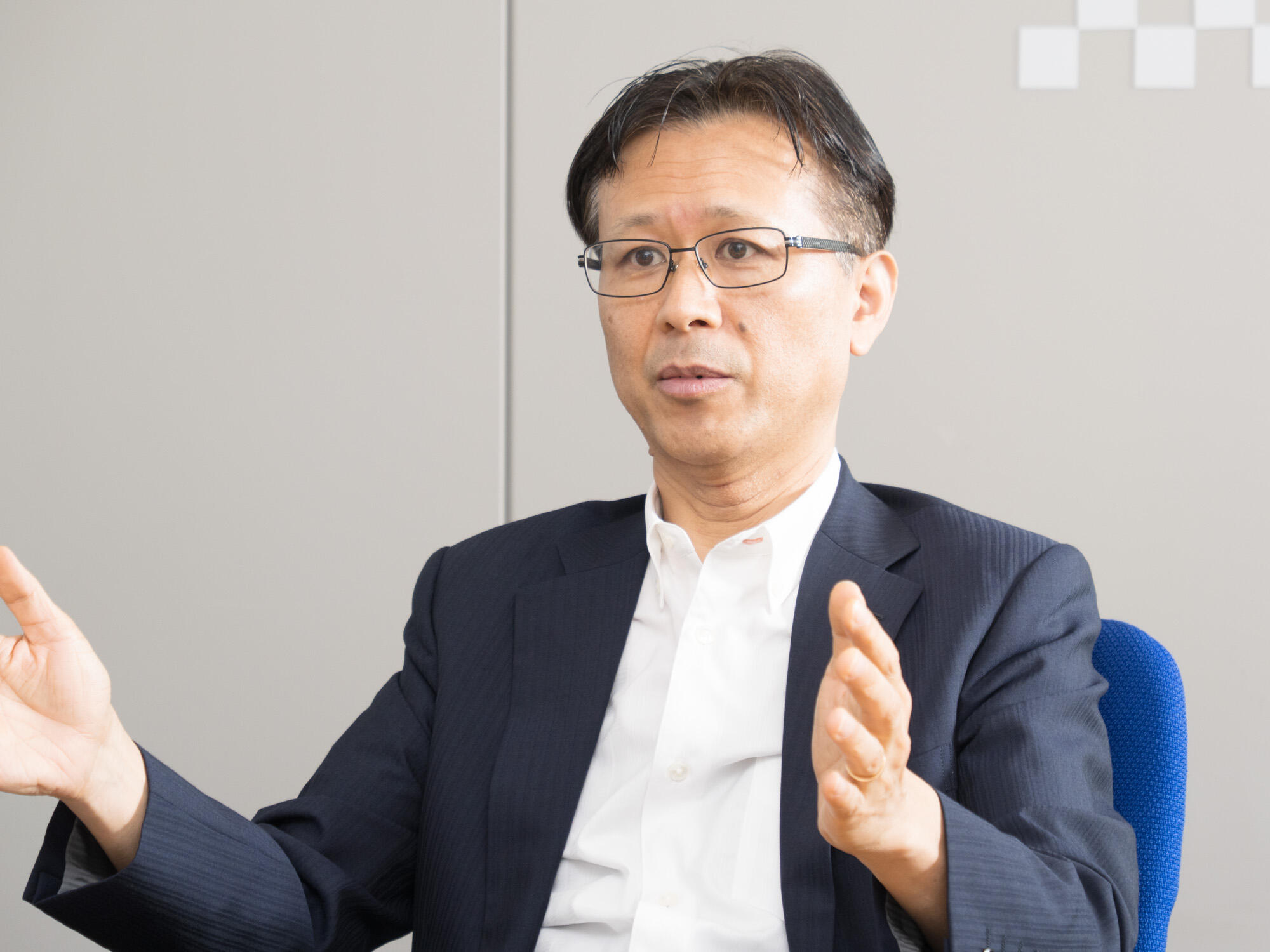
Some of you may be aware that issues with chemical substances such as PFAS (fluorinated organic compounds) and nitrosamines, which are suspected to be carcinogenic, have been frequently covered in the media. Although these issues have only come to light thanks to advances in various analytical technologies, when they are found to have adverse effects on health and the environment, regulations are becoming stricter, and moves to implement more rigorous testing and recording are accelerating in various industries, including the pharmaceutical industry.
While these trends are expected to lead to strong demand, our current strategy is to pursue "narrow and deep" focus in the mainstream fields of liquid chromatography and mass spectrometry, rather than simply increasing the number of instruments we handle, and to meet the various needs of our customers. As part of this, we are also focusing on software that supports practical work in these two areas.
Haneda: So the market has the potential to expand beyond pharmaceutical manufacturers, which have been your main target up until now, to include manufacturers of chemicals, toiletries, cosmetics, etc. By the way, when did you start your business in Japan?
Miyake: Waters Japan, the Japanese subsidiary of Waters Corporation, was founded in 1973 and has a history of over half a century. During that time, we have steadily developed the market, primarily with pharmaceutical manufacturers, and I think we are well known among people working in laboratories.
In terms of sales by country, Japan is fourth after the United States, China, and India, accounting for 6-7% of total sales, so it is recognized as an important market by the US headquarters.
Laboratory management system "NuGenesis" is performing well
Haneda: B-EN-G is primarily involved in the implementation of ERP systems and other business systems for the manufacturing industry. We have built particularly strong relationships with clients in the healthcare and life sciences fields, and have worked to help them comply with regulations for manufacturing control and quality control. As part of this, we have decided to handle your company's software for managing test data and processes for clients in the pharmaceutical manufacturing industry.
Miyake: Of course, the hardware equipment that directly handles precise analysis is important, but the systems that properly manage the data measured and the entire workflow are becoming increasingly important, and software is what embodies this. Our company is marketing products such as "Empower," which handles chromatography equipment control, data acquisition, and reporting, and "NuGenesis," a laboratory management system that goes beyond that and digitally supports the entire laboratory, streamlining quality testing operations and meeting compliance requirements.
Miyazawa: When Haneda mentioned "your company's software," he was referring to NuGenesis. We have been supporting their implementation as partners since 2011, and our track record is steadily increasing.
Miyake: Actually, NuGenesis' business is growing steadily in Japan compared to other countries. Of the approximately 950 installations worldwide, Japan has already reached 100. Executives from the US headquarters and other regions often ask me why, and when they do, I tell them that the presence of our partner, B-EN-G, is a big factor.
This is an undeniable fact. When we consult with customers during pre-sales, B-EN-G staff accompany us from the early stages with agility, and they are extremely knowledgeable about the industry and always make various proposals from the customer's perspective, which is very helpful. From the customer's perspective, the conversation flows well, and they are able to grasp background information with just one comment, which is sure to impress. I am truly amazed at their knowledge and enthusiasm.

Haneda: Our company's roots can be traced back to Toyo Engineering. The veteran generation, who were involved in the launch of pharmaceutical manufacturers' factories, have since led B-EN-G. The terminology and methods specific to plant construction are deeply ingrained in their minds, and they understand firsthand the importance of thorough quality control and validation. In addition, user groups where companies to which we have supplied systems exchange information are very active, and it is not uncommon for us to directly confront them with on-site concerns and issues there.
We are proud of our strengths, as they are our thorough knowledge of every aspect of the manufacturing industry and our strong desire to help those working hard on the front lines.
Miyake: That's very encouraging. I hope we can continue to work together, complementing each other. I would also like to introduce this collaborative scheme that has been proven in Japan to other countries, so I would like to hear your advice on various matters.
Strengthen in line with technology trends and regulations
Miyazawa: In order to provide customers with useful proposals, could you tell us about the direction of functional enhancements and evolution of your software products?
Miyake: First of all, it's important to keep up with technological trends and to fully adopt them as much as possible before other companies. For example, migrating major functions to the cloud and utilizing AI are priority themes.
Haneda: I can really feel from my daily conversations with customers that the market's perception of the cloud has changed. In the manufacturing industry, the majority used to think that "important data cannot be uploaded to the cloud," but now they all agree that "it is precisely because the data is important that it should be uploaded to the cloud." I feel that this is especially true for larger companies.
Miyake: That's right. That's why we are systematically migrating our existing functions to the cloud, aiming to provide a single platform for everything from data acquisition to analysis. I can't give you a detailed roadmap, but taking NuGenesis as an example, we will first migrate the SDMS (Scientific Data Management System) functions, followed by the ELN (Electronic Lab Notebook) functions. However, we are not completely committed to the cloud. Some customers prefer to use the system on-premise, so we need to provide a variety of options.
It's also important to stay up to date with various regulations. It's essential to keep up with evolving global regulations, with a strong focus on keeping compliance and validation functions up to date. For example, one of the most talked-about concepts in the pharmaceutical industry today is "data integrity." This refers to ensuring that data associated with trials is complete, consistent, and accurate. To ensure patient safety and pharmaceutical quality, data must be proven trustworthy. While data integrity is a broad concept, its content is strengthened every year, and with each major event, so software products, including NuGenesis, must be updated promptly to ensure they comply.
Data utilization maturity is not increasing
Haneda: I understand the direction of future strengthening. But what are your customers' current concerns? It seems we need to have a firm understanding of this when thinking about the future of healthcare and life sciences.
Miyake: It's hard to generalize, but when you look at companies, especially large ones, that have even implemented software products, not being able to effectively utilize data is one of their top issues. Analytical methods are becoming more diverse in laboratories, and the number of instruments is increasing. As a result, data is rapidly increasing, but the data formats vary from manufacturer to manufacturer. Even the pre-processing of centrally aggregating and integrating data is surprisingly time-consuming.
Furthermore, even when it comes to the analysis stage, we hear that it is difficult to know how to interpret the data in order to gain insights that are useful in practice, and that the method does not take root in the field.
Haneda: We would love to help with that. We support the implementation of core business systems, planning systems, manufacturing execution management systems, laboratory test information management systems, equipment linkage systems, quality event management systems, and more, primarily for pharmaceutical manufacturers and other manufacturing customers. In any case, simply installing the system is not the end of the process; what comes next is the effective use of the data. If we can obtain various data from the workplace, we can use it to improve demand forecasts, for example, but we cannot reach the ideal form in one leap from the start.
Therefore, we have organized a specialized data analysis team, prepared practical templates, and have put in place a system to raise the level of data utilization for our customers.As for data integration, which we talked about earlier, we have a lot of experience, so I think we can advise you on effective measures.
Miyazawa: If you use data effectively, it seems like it could be useful for your business. By analyzing the operational performance of equipment, you can estimate the timing of replacement of maintenance parts and make proposals to optimize the operation of the entire lab. In other words, it creates an opportunity to visit customers regularly. If you were to create a specific service menu, we could probably make various proposals.
Miyake: These are all very interesting stories. You have a lot of experience and knowledge in the context of "deriving business value from data," so I hope we can further exchange information and increase opportunities for collaboration.
A bridge between the lab and the information systems department is needed
Haneda: We talked about data integrity earlier, but these days it has become a topic that cannot be resolved by the lab alone, and it seems that new concerns are beginning to emerge.
Miyake: In the past, laboratories had their own budgets and contact points for introducing equipment and software, and were sometimes called "sanctuaries." Generally, when networks and data are involved, the information systems department takes over, but laboratories were treated as an exception, with researchers also managing the servers. However, with the trend toward stricter data integrity regulations, the current trend is for laboratories to focus on measurements, while the authority for management to meet data integrity requirements is being transferred to the information systems department. To successfully advance data integrity projects, it is essential to have a coordinator who understands the positions of both the lab and the information systems department.

Miyazawa: We are also good at acting as a bridge between the two. We have a strong familiarity with the lab's operations through our work with NuGenesis, and in projects such as ERP implementation, our counterparts are the information systems department and the corporate planning department, so we understand their respective positions, including their respective circumstances and circumstances. In fact, we have been responsible for planning and coordination related to the division of authority between the lab and the information systems department, and have experience creating qualification reports for all analytical equipment.
Miyake: It's much more persuasive to say, "We tried this and it worked," rather than, "Here's a possible solution." Knowledge based on proven results is invaluable.
Expanding business scope with biopharma in mind
Haneda: What kind of growth strategy do you have in mind for the medium to long term?
Miyake: Our global policy is to continue our core business while actively expanding into adjacent fields. In the pharmaceutical field, there is a major trend from small molecules to medium molecules and then to large molecules. Our company will also broaden the range of our product lineup in line with this trend.
While focusing on in-house development, the company is also actively pursuing M&A. In May 2023, it completed the acquisition of Wyatt Technology, a US company with strengths in light scattering detection technology. Furthermore, just recently in July 2025, it announced the integration of the Biosciences and Diagnostic Solutions business of Becton, Dickinson and Company (BD). From that Biosciences business, the company will incorporate flow cytometry technology, which analyzes cell counts, cell cycles, and protein expression levels, into its portfolio.
As we expand the range of analytical equipment with biopharma in mind, the amount and variety of data will naturally increase by orders of magnitude. The power of software such as NuGenesis is essential to effectively handle this data, and we believe that the opportunities for us to contribute will also expand. In order to focus on this, we have established a new organization called the "Bio Business Unit."
Another key focus is the hospital market, in other words, testing at medical institutions, and the acquisition of BD's diagnostics business is part of that. It will likely take some time to get on track, but we have also started moving forward with this by organizing a dedicated team called the "Clinical Business Unit."
There is still room for growth in a market where technological advances and regulations are constantly being strengthened. We would like to expand our business while providing our unique value and contribute to people's health and welfare.
Haneda: I've reaffirmed that by joining forces, we can deliver even greater value to the market. I look forward to your continued support as we move towards the future of life sciences.
Company Profile
Company name: Nihon Waters K.K.
Founded: November 1973
Business: Import, sales, and support of analytical instruments (liquid chromatographs and mass spectrometers) and related products
Capital: 430 million yen
Number of employees: 280 (as of the end of January 2024)
